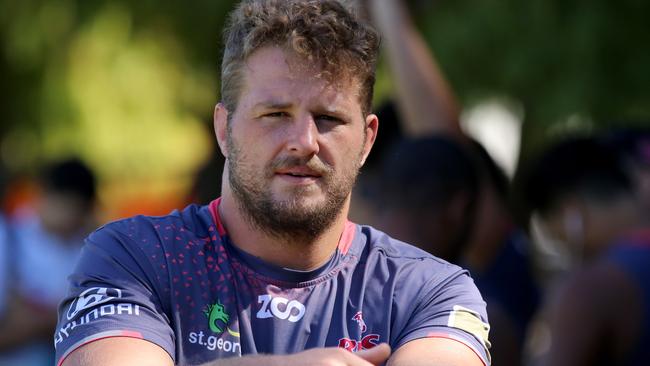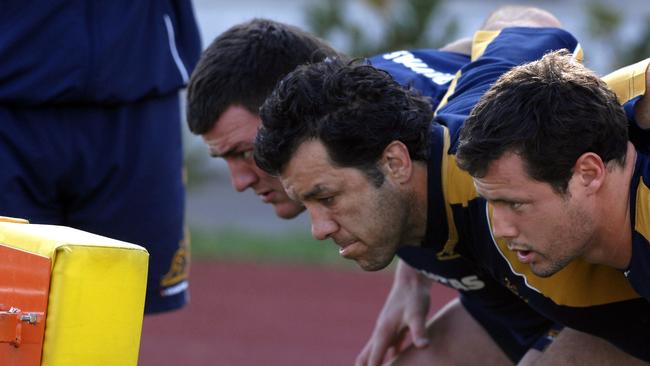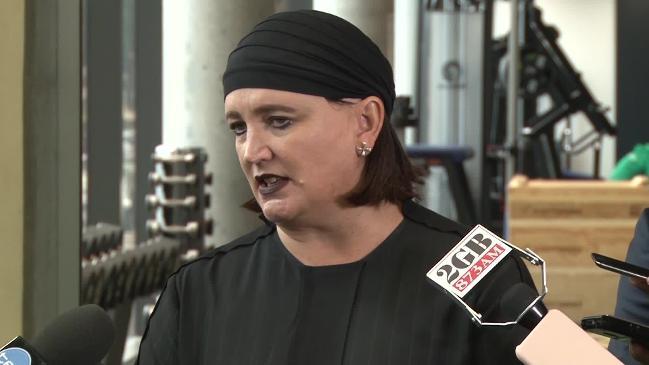Brendan Cannon: James Slipper case shows depression among sportspeople still being ignored
I KNOW from personal experience what James Slipper is going through with depression. It made me feel insecure. It buried me in negative thoughts and I feared for my career.

Rugby
Don't miss out on the headlines from Rugby. Followed categories will be added to My News.
IN the wake of the revelation this week that James Slipper is suffering depression, I urge all sports to address an area of welfare that has been ignored for too long.
There have been many, many instances of mental illness creeping into athletes across all codes as they confront rehabilitation for long-term injury.
From personal experience, I know how difficult this period of a sportsman’s life can be.
In April 2006, I had my neck injury, had an operation and was out of the game for three months.

TRAGIC: The cause of Wallaby star’s depression
TUCKER: The day I asked James Slipper if he used cocaine
SLACK: Policy may have let Slipper down
I remember feeling so insecure and vulnerable, first physically and then mentally.
This is when I began to feel the presence of an invisible opponent, one who would become my companion on that long and lonely road back to the Wallabies.
This invisible opponent feeds you plates of doubt and fear.
He buries you in negative thoughts.
You lay awake at night, wondering if you’ll ever be as strong as you were before the injury, wondering if you’ll be good enough while watching other players perform in your position.
You will start to question whether this might be the end of your career.
Through no fault of the team, you will begin to feel isolated.
You are training away from them, doing rehab on your own, and even in the weekly team meetings you’re feel the disconnect because it is all geared towards the players taking the field each week.

I did manage to return later that year for the Australian team, but I was incredibly apprehensive about how my neck would cope in that first scrum – I was jeopardising my welfare with that fear in me but I just told everyone I’d be right because I didn’t want to lose the opportunity to play for my country.
As it turned out, that comeback match in Rome against Italy was to be my last in the Wallabies jersey.
I had a few games in Super Rugby for Western Force the following year before I injured my neck again, and I knew I didn’t want to play anymore because I was genuinely scared for my safety.
When you live and breathe the professional football environment 24/7, it takes a huge emotional toll when you suffer a serious injury.
Not enough is being done to look after the player’s welfare at that difficult time.
Teams and coaches are concerned that the athlete makes a full physical recovery, but it is just as important – if not more – that the rehabilitation takes on both physical and mental recovery.

I believe a psychologist should be appointed as part of every coaching team, alongside strength and conditioning experts and team doctors.
There needs to be a diligent and strategic investment made into the mental health of players, particularly in that very delicate time when they face an extended period of time out of the game.
The time when their routine and camaraderie suddenly disappear, only to be replaced by the insipid, invisible companion.
Beyondblue: 1300224636
Lifeline: 131114.
Watch the 2018 Super Rugby Season on FOX SPORTS. SIGN UP NOW >
